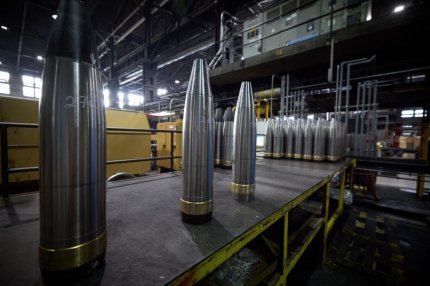Against the background of the continuation of the criminal war unleashed by Russia against Ukraine, the EU countries have to carry out rapid rearmament, but bureaucracy, lack of funds and other problems that can lead to the failure of strategic plans stand in the way.
Points of attention
- EU countries are facing obstacles in rapidly rearming and transitioning their economies to military lines in response to Russian aggression.
- Issues such as bureaucracy, lack of funds, and social norms are creating hindrances for defense preparations and production of ammunition in EU countries.
- The competition among European defense companies and the reliance on American suppliers due to lack of investment are leading to reduced funds for European manufacturers.
- Reconciling the needs of defense industries with the demands of citizens is a key challenge in transitioning the economy to a military system in Europe.
- Delays in acquiring permits, political disagreements, and challenges from local residents are further complicating the efforts of defense companies to expand and increase production in EU countries.
What is known about the problems of the EU countries with preparing for defense against Russian aggression and transferring the economy to "war" lines
According to the journalists of the publication, in recent months the need for additional military aid to Ukraine and the strengthening of the defense capabilities of the EU countries have become increasingly urgent.
In particular, the leaders of the EU countries fear that the victory of the Republican Donald Trump in the presidential elections in the USA may affect Washington's commitment to strengthening the defense capabilities of Ukraine and the EU countries.
However, in general, the efforts are still hampered by bureaucracy, bottlenecks, the public's wary attitude towards the production of weapons and the refusal of banks to lend money, the publication says.

It is noted that last year, Denmark bought out a factory for the production of ammunition to resume the production of artillery ammunition.
After reaching the design capacity, the plant should produce 120,000 artillery shells per year, mainly of 155 mm and 120 mm caliber.
Due to political disagreements, the process of finding a company to manufacture ammunition was delayed for almost a year.
So far, the official tender has not been announced.
It is predicted that the Danish plant will reach full capacity no earlier than the end of 2026, that is, three years after it was bought by the state.
Thus, a few months after the acquisition of the plant, a majority in the Danish parliament demanded that the government open the process to bidders, rather than settling on the presumed favorite, the Norwegian defense company Nammo.
Several Danish consortia have submitted bids, arguing that production should remain in Danish hands to strengthen the country's defense industry.
In other countries of the continent, residents of nearby areas create obstacles for the implementation of projects. Europe's leading tank manufacturer, KNDS, had planned to expand the test site in Munich, but was forced to suspend work due to complaints from local residents, including one man who said the robots interfered with his meditation. Other residents were concerned that the noise from the landfill would affect housing prices, the publication emphasizes.
And in the German city of Troisdorf, Diehl Defense has struggled to get permission to expand a factory in the city center to increase production of detonators and other parts for the Iris T missile defense system.
Diehl CEO Helmut Rauch said that obtaining permits to build or expand defense facilities, which should take several months, sometimes takes up to 18 months. According to him, officials "do not understand... that we are in a critical political situation in Europe."
What is known about the problem of lack of funds in EU countries
Representatives of European defense consortia complain that foreign investors are mostly deterred by European environmental, social and corporate governance norms.
An even more significant problem is the refusal of a number of European banks to issue loans to defense enterprises.
Defense companies also say that two years into the war in Ukraine, they are still not getting enough long-term orders to plan and invest.
The inaction has created a vicious cycle: Europe's underinvested defense companies fail to deliver, prompting European governments to buy from American suppliers instead. This, in turn, means a reduction in funds for European manufacturers, who risk falling even further behind in the race for new military and technological achievements, the authors of the article emphasize.




